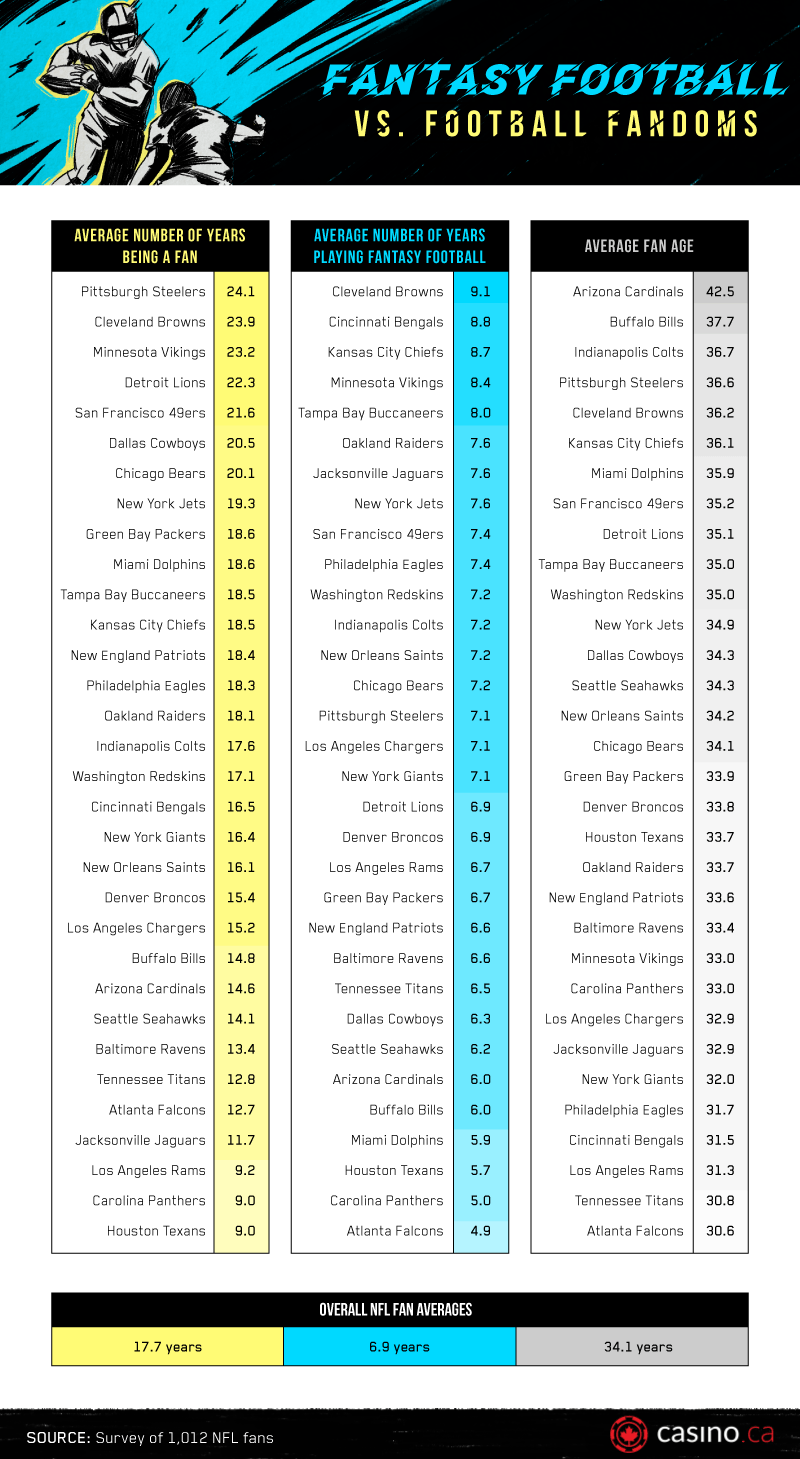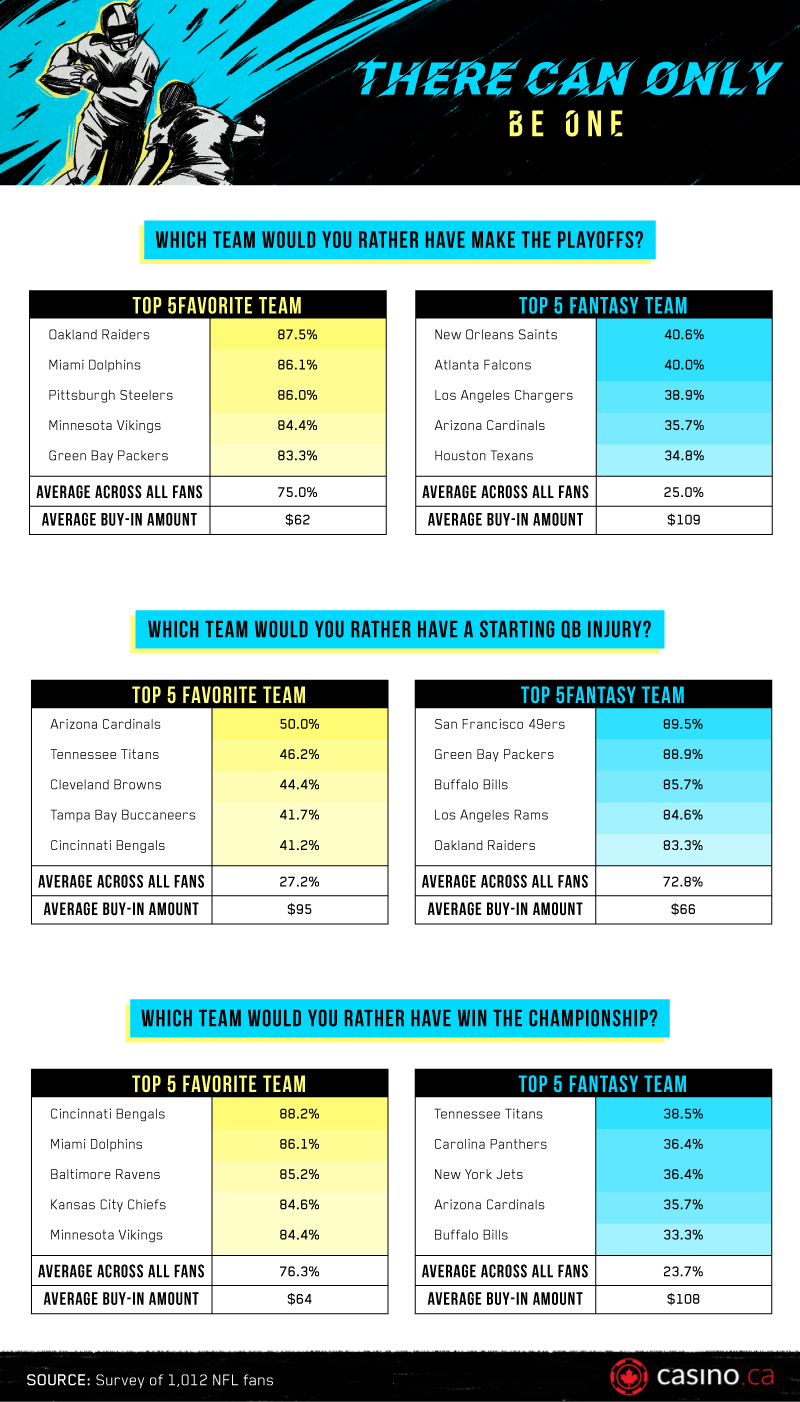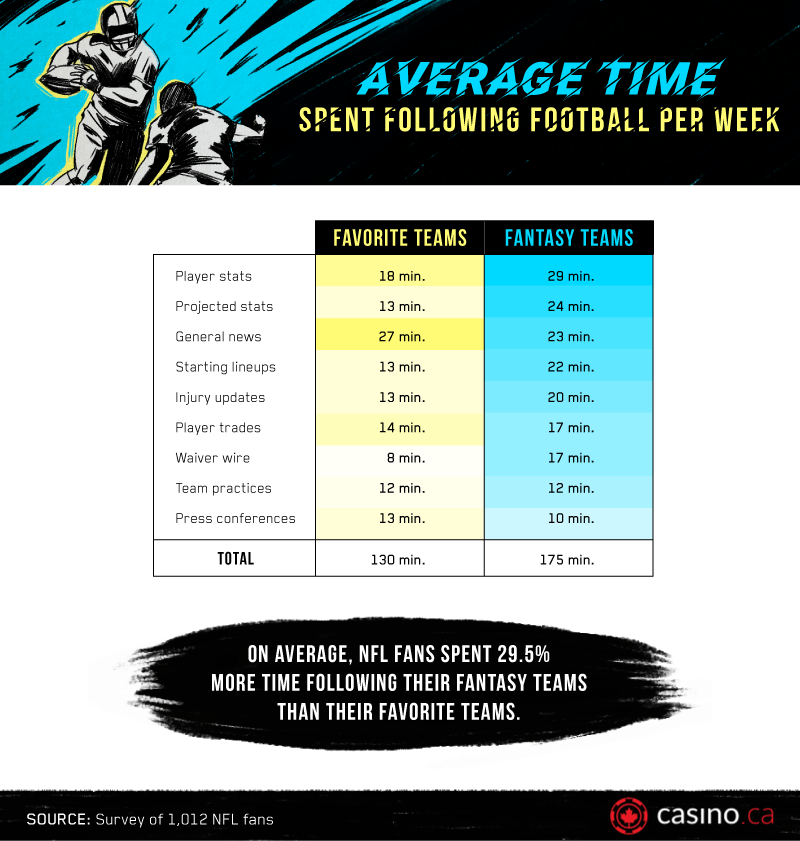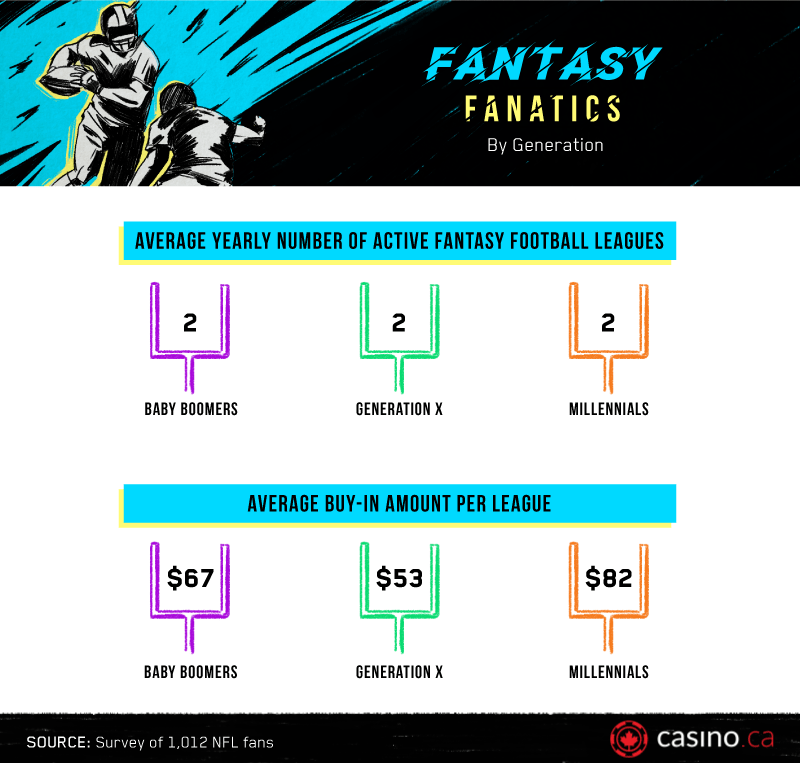Loyalty Longevity

First, we gauged the average time frame for fandom and fantasy participation among followers of each
franchise. Steeler Nation took top honors in terms of longevity: Pittsburgh fans typically followed
their team for more than 24 years. Loyalty (or masochism) ran deep in Cleveland as well: Despite
sustained
struggles, Browns fans supported their team for 23.9 years on average. Interestingly, Browns
fans had the most extensive record of fantasy participation as well, suggesting that fantasy leagues
may have helped them through the worst of times with their team. Similarly, Bengals fans ranked
second in average fantasy football experience; however, their team hasn't won a playoff game
since
1990.
Of course, one might assume that teams with older fan bases would naturally have lengthier track records
for both fandom and fantasy play – they've simply been around longer. That did hold true to some
extent for real team support: Pittsburgh and Cleveland, for instance, had some of the NFL's oldest fans
on average. But some of the oldest fan bases had relatively little fantasy experience, including the
Bills and Cardinals. Age may not matter in this regard, because the massive popularity of
fantasy sports is a relatively recent phenomenon. Between 2009 and 2017, the
number of
fantasy players in the U.S. and Canada doubled.
Triumph and Tragedy: Choosing a Team

When asked to choose between squads, fans' primary loyalties remained with their real-life teams. On
average, 3/4 of fans preferred seeing their favorite NFL franchise make the playoffs over their
fantasy team. A similar percentage said they'd rather see their real team take home the title,
despite the potential windfall associated with winning in fantasy leagues. Money did matter, though:
Among those who prioritized postseason success for their fantasy teams, buy-ins tended to be much
higher.
On the subject of key injuries, some teams' fans were pretty cutthroat in favor of their fantasy squads.
In Arizona, where the current
quarterback
situation is anything but settled, 50% of fans said they preferred the Cardinals' starting
quarterback get hurt before losing the top passer on their fantasy squads to injury. In fact,
Arizona fans were particularly likely to throw the franchise under the bus to boost their fantasy
fortunes. Cardinals fans ranked in the top five for preferring their fantasy teams to make the playoffs
and win a championship.
Time Commitment by Team

Fantasy teams may not provoke more passionate fandoms than real franchises, but our data suggest they do
require more time. This dynamic relates mainly to the details involved in successful fantasy management.
While fans spent roughly equal amounts of time following general news related to their real-life and
fantasy teams, our respondents spent about twice as much time each week investigating projected stats
and starting lineups for their fantasy squads. They also spent seven more minutes, on average,
following injury updates related to their fantasy players and nine more minutes watching the waiver
wire.
Cumulatively, the contrast in time commitments between favorite and fantasy squads was striking: On
average, fans spent nearly three hours each week following their fantasy teams, but just over two
hours keeping up with their real ones. The intense emphasis placed on fantasy data isn't lost on
real players, many of whom are frustrated by their stats being scrutinized. Stars from LeGarrette Blount
to Odell Beckham Jr. and Martellus Bennett have
taken
to Twitter to assert how little they care about fans' fantasy outcomes.
Multiple Leagues: Balancing and Buying In

Fantasy players are drawn to multiple leagues for a number of reasons, including matching up against
different crews of competitors and experimenting with
contrasting
formats. Indeed, our findings indicated that players participated in two fantasy leagues per
year on average. This held true across generational lines, an interesting finding given
widespread
concerns that the NFL is losing its grip on younger fans. With regard to fantasy participation,
at least, millennials don't seem to be any less invested.
In fact, millennials paid more to participate in each league, on average, than their older peers. That's
a particularly compelling finding given the
monetary
struggles that afflict this generation, including limited wage growth and student debt. Baby
boomers typically paid $15 less than millennials to buy into their leagues, and Gen Xers paid the least
at $53 on average.
Enough Fan Love to Go Around
Our findings suggest that fans typically invest more time and money in their fantasy leagues than real
teams. However, despite their commitment to their fantasy squads, loyalty to real franchises comes
first when it comes to important outcomes, such as injuries and postseason success. Perhaps
fantasy leagues will never be able to mirror the shared experience of backing a real team. When our
fantasy teams triumph, we enjoy bragging rights among our buddies. But when an NFL team is crowned
champion, a whole fanbase can celebrate collectively.
Moreover, our results suggest that fans need not choose between fantasy and reality when indulging in
their love of football. So long as you have time, feel free to enjoy each passion independently. Loving
multiple teams simultaneously doesn't call your fandom into question – unless, of course,
they play in the same league.
Methodology
We collected responses from over 1,012 people using Amazon's Mechanical Turk. 30.4% of participants were
female, and 69.6% were male. Participants ranged in age from 18 to 76 with a mean of 34.1 and a standard
deviation of 9. Participants were excluded if they were not fans of an NFL team, did not participate in
a fantasy football league, or were clearly not paying attention (failed an attention-check question or
entered obviously inconsistent data). No statistical testing was performed.
Self-reported studies may suffer from certain disadvantages due to the way subjects respond while taking
surveys. These disadvantages include but are not limited to the following: attribution, selective
memory, telescoping, and exaggeration.
Sources
Fair Use Statement
If you'd like to share this content with your friends and followers, you're welcome to use our images for
noncommercial purposes. Just do us a favor and link back to this page to give our team due credit. Like
giving your buddy props for a fantasy victory, it's just the classy thing to do.




